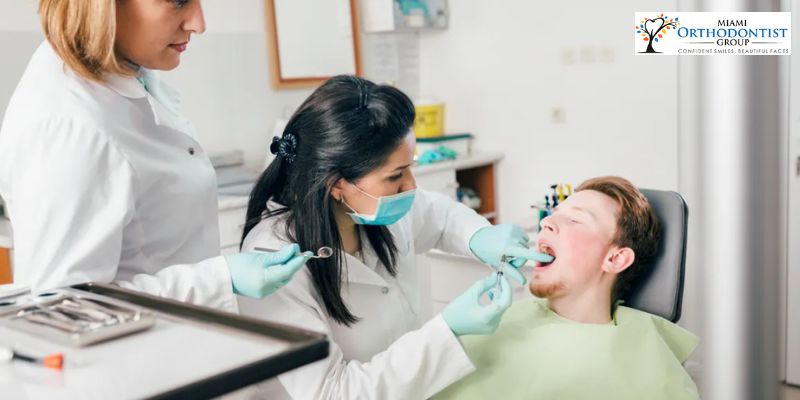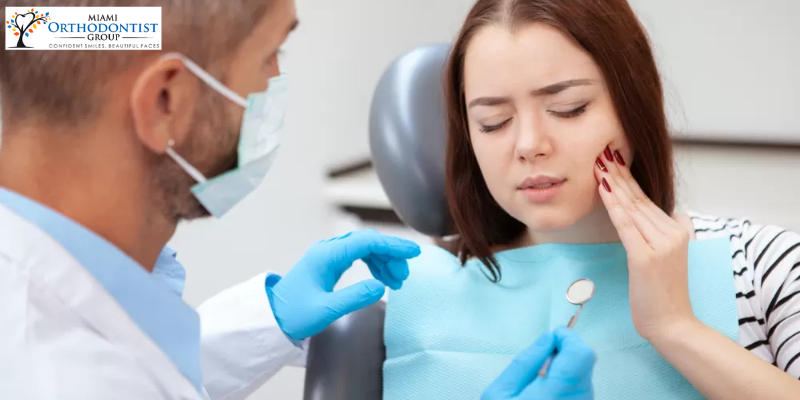Dental emergencies can result in substantial pain, inflammation, swelling, and even more serious problems in the future. However, what constitutes a dental emergency? When should you schedule an appointment with an emergency dentist, and when can you wait until the next appointment?
It is critical to distinguish between a minor dental emergency that may wait until the morning and a genuine emergency that could endanger your health. Here are some things you should be aware of while identifying dental emergencies that demand quick care.
What do you mean by a dental emergency?
 The prevalence of dental emergencies is demonstrated by the fact that roughly 22% of people said they had had mouth discomfort in the preceding six months.
The prevalence of dental emergencies is demonstrated by the fact that roughly 22% of people said they had had mouth discomfort in the preceding six months.
However, not all dental emergencies should be treated as such. Asking yourself the following questions might help you decide whether you can manage until your next clinical visit or if you need to visit an emergency dentist:
- Do you feel a lot of pain? An emergency is indicated by excruciating pain and haemorrhage.
- Do you have a missing tooth? A tooth that is treated quickly may be saved. Teeth should never be missing in adults. Even when there is no discomfort, a loose tooth is a major issue.
- Do you have a disease? Treatment should not be delayed if you have an abscess or significant oral infection since they might be fatal.
- Are you experiencing mouth bleeding? It usually means that you have a dental problem.
Any dental issue that requires urgent care to halt bleeding, reduce excruciating pain, or save a tooth is generally seen as an emergency. This also holds for serious infections that pose a risk to life.
Understanding different dental emergencies
 1. An unexplained toothache
1. An unexplained toothache
Toothaches are more than simply a bothersome inconvenience or something you should ignore. They are an indication from the body that there is a problem in the mouth. When you have severe, unexplained tooth pain, seek the advice of a qualified emergency dentist to help with the treatment and diagnosis of the issue.
2. Bloated or bruised gums
Even while infrequent gum inflammation is not a dental emergency, persistent bleeding in the gums, particularly if it is accompanied by discomfort and swelling, might be a sign of a dental or medical problem.
Gum bleeding for no obvious reason is abnormal. If you have these symptoms, schedule an appointment with your dentist straight away.
3. A swollen mouth or haw
If your mouth or jaw suddenly gets swollen for no obvious reason, it is time for an emergency dentist appointment for prompt treatment. If you think you could be suffering from an infection, primary tumour sensitivity, or another problem, you should seek expert dental care immediately.
4. Exposed nerve fibres of the teeth
If you put off visiting the dentist, your painful exposed nerves will only get worse. To prevent infections, significant nerve damage, or more complex emergency dental treatments, seek immediate dental care as soon as you can.
5. Knocked-out tooth
It may be pretty shocking to have a tooth abruptly pushed out of your mouth by a strong blow! But now is the moment to act. The American Association of Endodontists states that by acting quickly, your dentist may be able to reinsert and save your tooth.
6. Improper filling
Another potential dental emergency is a missing filling because, without that strength, your tooth can easily crack or chip. It could also make the tooth’s nerves visible, which might cause a variety of severe dental problems that need rapid attention.
7. Teeth with broken crowns
Your teeth are more vulnerable to infection and decay when they are exposed due to a fractured or completely missing dental crown. You might be able to avoid needing a root canal, extraction, or other dental operation by making an appointment for an emergency dental visit to replace the crown.
What Procedures Are Used to Treat Common Dental Emergencies?
- Root canal therapy
- A dental filling extraction
- Dental extraction
- Antibiotic therapy
If your tooth has been broken, knocked loose, or has been entirely removed, your dentist may need to conduct the following:
- Tooth filling
- Root canal therapy
- Treatment with antibiotics
- Splinting
- Reimplantation
Summary
Dental emergencies can occur, even if excellent preventative treatment can help keep some problems at bay. Time is crucial if you have a dental emergency, since you do not want things to become worse. Numerous emergency departments and urgent dental care clinics are available twenty-four hours a day to help people with urgent needs.


